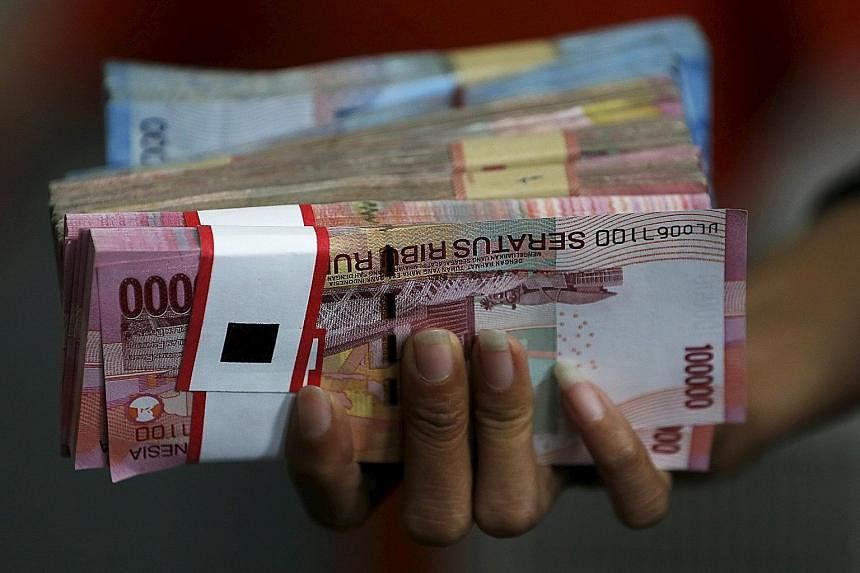Investors took on risk again yesterday, piling into equities, Asian emerging market currencies and crude oil.
The catalyst? Dovish newly released minutes from the Federal Reserve's September meeting further confirming expectations an interest rate hike this year is unlikely.
The Straits Times Index (STI) broke the key 3,000-point resistance yesterday, hitting 3,010.95, its highest level since late August. But it could not sustain that level, partly because of concerns over upcoming third-quarter corporate earnings. It closed up 1.75 per cent.
"This may be a bull trap, or a bear market bounce," remisier Alvin Yong cautioned. "The rally in Singapore stocks needs to be accompanied by good-quality earnings growth by Singapore corporates for the third quarter, or it will just be a hollow rally."
A bull trap refers to a false signal indicating that a declining trend in an index has reversed and is heading upwards when, in fact, the index may continue to decline.
But if Wall Street continues to rally past 17,200, the STI could recapture the 3,000 mark, he said.
Prices of riskier assets, which had risen when the Fed held off raising rates last month, got further tailwinds on confirmation that policymakers won't rush to tighten policy.
The Fed minutes revealed the extent to which policymakers are concerned that a global economic slowdown may threaten the US economic outlook. Although they noted overseas turmoil had not "materially altered" economic prospects, they stayed their hand at raising interest rates last month.
"In part because of the risks to the outlook for economic activity and inflation, the committee decided that it was prudent to wait for additional information," the Fed said.
Bourses in Asia rallied. Japan jumped 1.6 per cent, Hong Kong rose 0.5 per cent, Shanghai jumped 1.3 per cent, Shenzhen was up 1.5 per cent, Malaysia put on 0.8 per cent, Thailand gained 1.4 per cent, and Jakarta leapt 2.2 per cent.
Asian currencies, particularly the Malaysian ringgit and Indonesian rupiah, extended their rally as oil prices soared. Brent gained 1.7 per cent to US$53.85 a barrel, while US crude jumped 2.7 per cent to US$50.78 a barrel, the highest level in more than two months.
The ringgit recovered to 4.1098 against the US dollar, a rise of about 6.2 per cent from the start of the week. The rupiah strengthened to 13,357 against the US dollar, from 14,461 on Monday.
Mr Khoon Goh, a senior strategist at ANZ in Singapore, cautioned: "While a delay in Fed rate hike expectations may have been the catalyst for the sharp rally in Asian currencies this week, we do not believe this is the start of a turnaround."
He still sees challenging times ahead due to slowing growth, deleveraging and prospects of further monetary policy easing.
"Asia is already in a trade recession, with exports contracting from a year ago for all countries bar Vietnam. The region's exports to the US had been the only bright spot over the first half of this year, but even this has started to turn. Therefore, any weakening in the US economy will further increase the headwinds for Asian exports," he said.
Emerging market currencies and those of commodity exporters will remain volatile for the rest of this year as a result of swings in investor sentiment and domestic political and fundamental challenges, said ABN-Amro analyst Georgette Boele. "New lows in the currencies versus the US dollar are very well possible."



